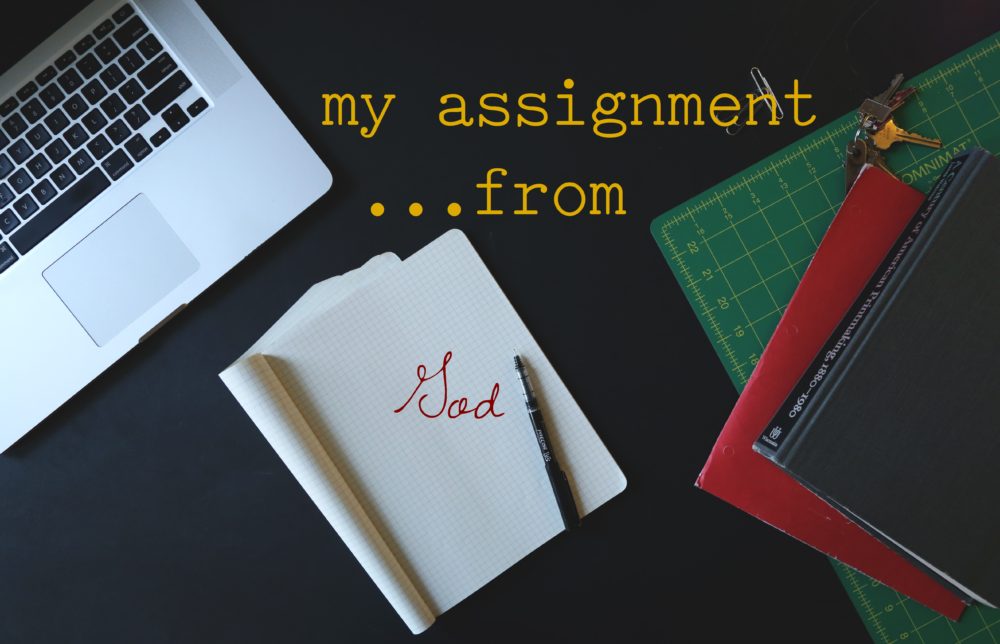
I was a brand, spanking-new junior in a high school far from my former Yankee home. So new, in fact, that my parents hadn’t even moved down yet; I bunked with friends of my parents, previously unknown by me, so I could be present at the start of the new school year. Marveling at the slow drawls, Wranglers, and racial tensions around school, I’d now written my first pre-AP English paper. We’d circled our desks and traded papers with another student. The student—bless his heart, as they would say in the South—was actually remarkably kind to me, er, my paper.
My English teacher was not.
The entire class soon knew how I’d blown it; how underdeveloped my paper really was. I slid lower in my chair. I still remember my inability to lift my eyes, my silent pleading for no one to figure out the paper was mine.
That year, she instilled no small degree of trepidation in me. I remember what students called her behind her back, the day she wrote “Blah” on the title of another paper, the snarky comments about student work. Let’s just say that her real name wasn’t Ms. Congeniality.
I suppose my parents could have stepped in. But that wasn’t the kind of parents I had. They’d step in if there was a crisis, of course; I always knew they had my back. But I wasn’t being abused. I was just uncomfortable. After that first day of class, I’d unsteadily crossed the parking lot to cry in the security of my grandma’s car when she picked me up.
But in retrospect, I think that teacher may have been one of the key people to call me out as a writer. She entered me in writing contests, hounded me about preachy writing, was visibly frustrated when she discovered I wouldn’t major in English, pushed me from naïve mediocrity to a new degree of confidence and clarity of thought. I’m pretty sure she was also a key compound forming the thicker skin I’d need as a writer, too.
I guess you could say my conflict with her was an assignment. …From God.
Conflicts are like that, though. They feel like interruptions; like a blight on the surface sheen of life. If it weren’t for ___, my life would be pretty sweet right now. Or perhaps they’re more, a subtle bitterness mingling its tang with all of life.
Funny how, despite the fact that conflict comes from the “desires at war within you” (James 4), I still think it’s the other person who needs to get his or her act together. It’s like that classic line of Adam’s, to God: The woman you gave me! God, you didn’t give me what I needed! This is not the right person (or teacher) for me.
It’s true, though. If God’s orchestrating my life, my holiness—the conflict that keeps eating my lunch is also my assignment. Of course, He’s not the kind of teacher who assigns what He hasn’t taught or I can’t handle—or scrawl glib commentary in the margins. And I suppose I do have the option to ignore the assignment, or to opt for a big red F, ignoring everything He’s patiently taught. But He does sculpt my knowledge and perseverance for the future; does diligently invest in creating an “approved workman, rightly dividing the Word of Truth,” who knows how to utilize discernment “through constant use.”
I’ve quoted Paul David Tripp on this idea before, because I love that it cuts to the heart of my irritation with my conflict.
You are essentially saying: “My problem isn’t a heart problem; my problem is a poverty of grace problem. If only God had given me ____, I wouldn’t have had to do what I did….
It is hard for us to accept that our words and behavior are not caused by what’s outside us, but by what’s inside us (see Luke 6:43-45)….
Subtle patterns of blaming God are in the way of receiving the grace that we need. (New Morning Mercies: A Daily Gospel Devotional
)
Even now, my conflicts with my husband, my kids, or, y’know, urban traffic stand ripe with possibility, with the ability to shape lean, supple cords of muscle in my faith—should I choose to receive them as opportunities.
Here’s to homework.












![Now You're Speaking My [Love] Language Now You're Speaking My [Love] Language](https://www.janelbreitenstein.com/wp-content/uploads/2015/08/love-languages-text-1.jpg)





Leave a Reply